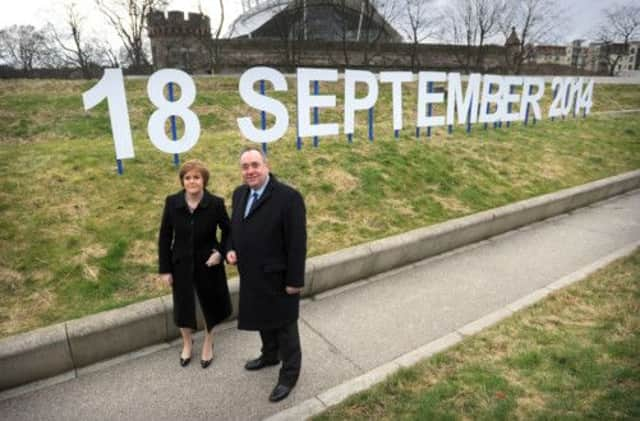Independent Scotland wins backing over Nato and EU


The foreign affairs committee also called on the UK government to use diplomatic channels to highlight its commitment to a consensual approach to the prospect of independence.
In its report on the impact of independence, the committee raised concerns that the SNP had done little work on analysing what Scotland’s diplomatic network and external security arrangements would be post-independence.
Advertisement
Hide AdAdvertisement
Hide AdAnd it warned that Scottish ministers were assuming “goodwill can overcome difficulties” in joining institutions such as the EU and Nato.
The report said: “There is a pressing need for official legal advice on a wide range of international legal issues, including EU accession, EU opt-outs and membership of international organisations.”
MPs on the committee disputed the view that Scotland’s journey towards membership of the EU and Nato would be straightforward. Evidence suggests the Scottish Government is largely alone in arguing that Scotland’s accession would be automatically take place from within the EU.
But the report noted: “There was a general consensus among witnesses that it would be in the rUK’s [rest of the UK’s] bilateral and strategic interests to support Scotland’s Nato membership aspirations.”
It added it would also be in the UK’s interests for Scotland to be a member of the EU.
The committee’s chairman, Conservative Richard Ottaway, said: “The implications of Scottish independence are rightly being discussed by people of all political persuasions and the loss of Scotland would be keenly felt by the UK.
“At the moment, there are some quite worrying gaps in the Scottish Government’s foreign policy vision and certain assumptions are being made which don’t seem to be based on concrete evidence.”
He went on: “It is not enough to hope and assert that things will go in Scotland’s favour at an international level and that goodwill will be forthcoming. A full and candid debate on the international implications of Scottish independence is now needed so that Scottish voters have the full facts before them when they vote in the referendum.”
Advertisement
Hide AdAdvertisement
Hide AdDeputy First Minister Nicola Sturgeon welcomed parts of the report, but said that the negative comments were hardly surprising as the committee was made up of pro-UK MPs.
She said: “Independence will allow Scotland to choose its own priorities, form its own relationships and decide on the policies that are in the best interests of the people of this nation.
“The best people to take decisions about Scotland’s future are the people who choose to live and work in Scotland.”
She went on: “We have continued to press the UK government to engage in constructive discussions and sharing of information prior to the referendum so that voters are as informed as possible.
“Yet the UK government chooses to focus on the negative case for maintaining the status quo, while steadfastly refusing to indicate that it will conduct sensible and consensual negotiations in the event of a vote for independence.”
Salmond dismisses talk of restrictions
ALEX Salmond has insisted that taxation and spending would be run “in Scotland” after independence, dismissing claims that its use of the pound would restrict the country’s room for manouvere.
Speaking to Channel 4 News, the First Minister confirmed his plan to hand monetary policy to the Bank of England as part of a “sterling zone” after independence.
Chancellor George Osborne claimed last week that such a deal, if agreed, would place limits on the kind of tax and spending powers Scotland could wield.
Advertisement
Hide AdAdvertisement
Hide AdOther economists have also warned of the constraints that Scotland may face if it signed up to a formal currency deal.
But Mr Salmond said last night that while borrowing and debt levels would have to be agreed, other restrictions were not needed.
He said: “You wouldn’t have to have oversight of Scotland’s budget.”
SEE ALSO